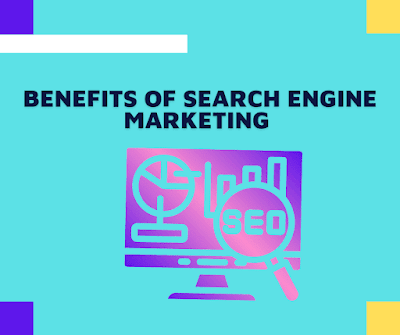Search engines play a vital role in our daily lives. Whether we’re searching for information, products, or services, search engines have become our go-to resource. For businesses, harnessing the power of search engines is crucial for online success. This is where search engine marketing (SEM) comes into play.
In this article, we will explore what search engine marketing is, its key components, and why it is an essential strategy for businesses in the modern era.
Understanding Search Engine Marketing:
Search engine marketing, often referred to as SEM, is a digital marketing strategy that aims to enhance a website’s visibility and drive targeted traffic through search engines. It involves a combination of paid advertising and organic optimization techniques to increase a website's presence on search engine results pages (SERPs).
Components of Search Engine Marketing
1. Search Engine Optimization (SEO):
Search engine optimization is the process of optimizing a website’s content, structure, and technical aspects to improve its visibility on organic (non-paid) search engine results. SEO involves keyword research, on-page optimization, backlink building, and website performance optimization. By implementing effective SEO practices, businesses can improve their organic search rankings and attract more relevant traffic.
2. Pay-Per-Click (PPC) Advertising:
PPC advertising is a paid marketing model in which advertisers bid on keywords relevant to their business, and their ads are displayed on search engine results pages. Advertisers only pay when a user clicks on their ad. The most popular PPC advertising platform is Google Ads, which allows businesses to create targeted campaigns and reach potential customers at the right moment. PPC advertising provides immediate visibility and offers precise targeting options, making it a powerful component of SEM.
3. Display Advertising:
Display advertising involves creating visually appealing banner or text ads that are displayed on third-party websites, often through ad networks. These ads can target specific demographics, interests, or websites to reach a wider audience beyond search engine results pages. Display advertising can be an effective way to build brand awareness, drive traffic, and reach potential customers across the internet.
4. Remarketing:
Remarketing, also known as retargeting, is a technique that allows advertisers to target users who have previously interacted with their website or ads. It involves placing a tracking code on the website, which then enables the display of tailored ads to users as they browse other websites or social media platforms. Remarketing helps businesses stay top-of-mind with potential customers and increase the chances of conversion.
Benefits of Search Engine Marketing
1. Increased Online Visibility:
One of the primary benefits of SEM is the increased online visibility it provides. By leveraging both organic and paid search strategies, businesses can position themselves prominently in search engine results, ensuring that they are seen by their target audience.
2. Targeted Traffic:
SEM enables businesses to target specific keywords, demographics, locations, and even user behaviors, ensuring that their marketing efforts are focused on reaching the right audience. This targeted approach increases the chances of attracting relevant traffic and potential customers.
3. Immediate Results:
While organic search engine optimization is a long-term strategy, paid search advertising can deliver immediate results. Through PPC campaigns, businesses can quickly drive traffic to their website and start generating leads or sales.
4. Measurable ROI:
SEM offers robust tracking and analytics tools that allow businesses to measure the return on investment (ROI) of their marketing campaigns. Advertisers can track key metrics such as clicks, impressions, conversions, and revenue, enabling them to optimize their campaigns for better results.
5. Cost Control:
With PPC advertising, businesses have full control over their advertising budgets. Advertisers can set daily or monthly spending limits and adjust their bids based on their budget and advertising goals.





No comments:
Post a Comment